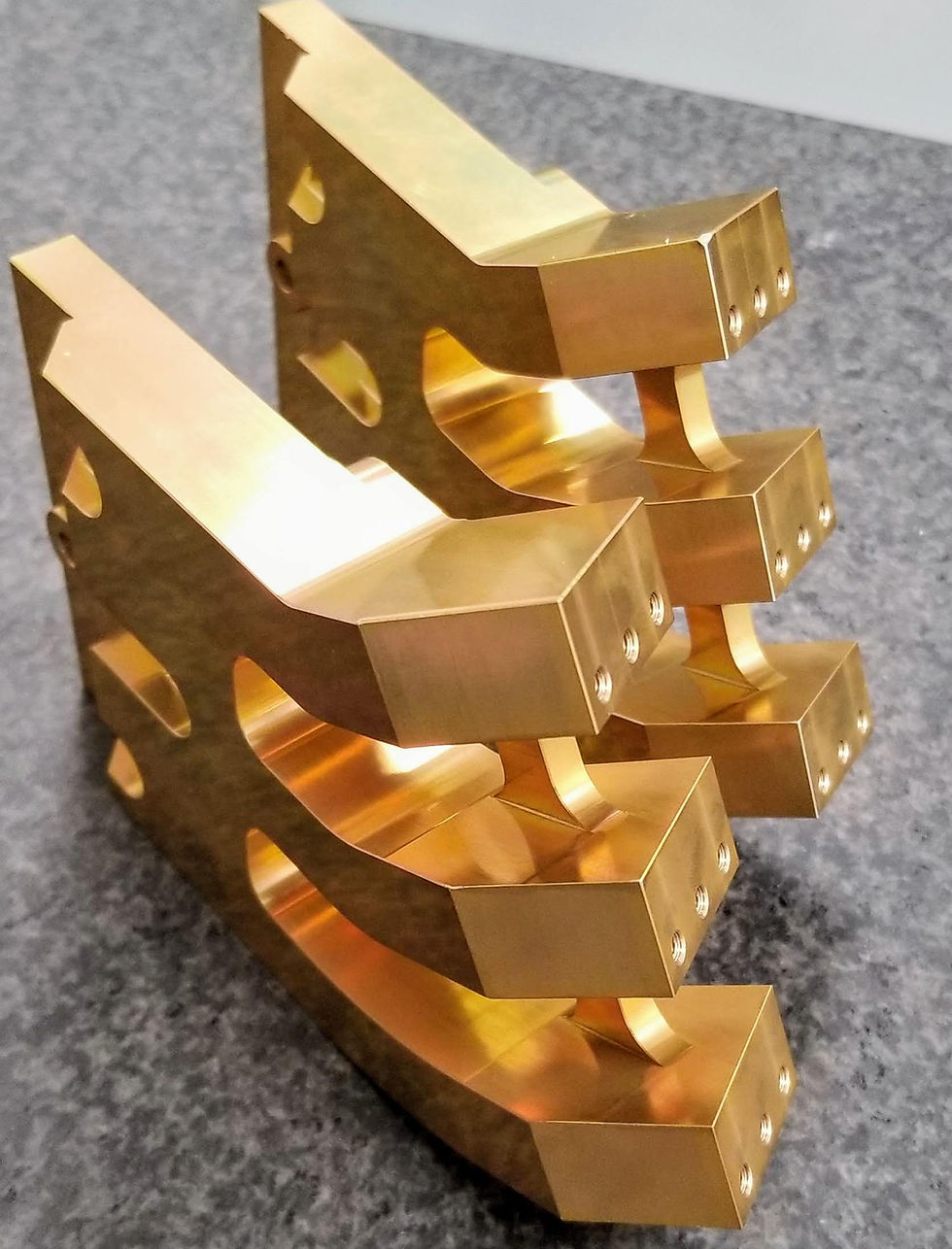Prototype CNC Machining: Why Traditional Machine Shops Outperform Quick-Turn-Time Shops
- DMAC Machining

- Aug 14, 2024
- 3 min read

Balancing speed and quality is crucial in the competitive world of product development. While Prototype CNC (Computer Numerical Control) machining offers the rapid creation of parts, the choice between quick-turn-time shops and traditional machine shops can significantly impact your project's success. In this post, we will highlight the quality variability from online quick-turn-time shops and why traditional machine shops are often the superior choice.
The Promise and Pitfalls of Quick-Turn-Time Shops
Advantages
Quick-turn-time shops are becoming increasingly essential for manufacturers and small businesses alike. Promising delivery of parts within 5 days to 2 weeks, these services offer the speed necessary for rapid iterations and agile development cycles.
Ordering from these services is typically straightforward, often involving easy online processes for uploading CAD files, selecting materials, and receiving quotes. However, while the allure of speed and convenience is undeniable, it's crucial to consider the potential pitfalls that may accompany these promises.
Disadvantages
In the fast-paced world of manufacturing, quick-turn-time shops have emerged as a valuable resource for businesses needing rapid prototyping and production. While these shops promise to deliver parts and components in record time, often a critical factor for small businesses and manufacturers looking to stay agile in competitive markets. However, while the advantages are appealing, it's equally important to recognize the potential pitfalls, such as:
1. Inconsistent Precision: Quick turn time shops often use standardized processes that may not meet the specific tolerances required for complex parts.
2. Material and Quality Limitations: The range of materials might be limited, and the quality of these materials may not always meet the necessary specifications.
3. Surface Finish and Detail Issues: Finishing and finer details can fall short, resulting in parts that do not meet functional or aesthetic requirements.
The Reliability of Traditional Machine Shops for CNC Machining
The allure of quick-turn-time shops is undeniable. However, for manufacturers focused on producing complex parts, the reliability of traditional machine shops remains unmatched. Despite their longer lead times, traditional shops offer unparalleled advantages crucial for high-stakes projects, including:
Customization and Expertise -Traditional shops provide high levels of customization and can handle specific requirements and tolerances that quick-turn shops might miss.
Quality Control - Rigorous quality control processes ensure every part meets the highest standards.
Problem Solving - Experienced machinists offer valuable insights and solutions for complex issues, ensuring parts function as intended.
Case Study: The True Cost of Quick-Turn-Time Shops
When it comes to manufacturing precision parts, The appeal of quick-turnaround shops can be quite enticing. However, the true cost often reveals itself through the need for subsequent corrections.
Consider a scenario where a company needs a prototype part for a new product. Initially, they opt for a quick-turn-time shop, receiving the part in 5 days to 2 weeks at a cost of $300. Unfortunately, the part arrives with several issues, including slight dimensional inaccuracies, some features not meeting specifications, and a subpar surface finish.
To rectify these issues, the company turns to a traditional machine shop, which takes an additional 3-4 weeks and costs $450 to make the necessary corrections. In total, the quick-turn approach ends up taking up to 6 weeks and costing $750.

In contrast, using a traditional machine shop from the outset would have taken 3-4 weeks and cost $500, delivering a high-quality part made to spec without the need for costly adjustments. This case study highlights that while quick-turn-time shops may promise speed, the reliability and precision of traditional shops often result in more efficient and cost-effective outcomes.
Invest in Expertise
While the initial allure of quick-turn-time shops lies in their speed and lower upfront cost, the hidden expenses and delays associated with correcting subpar parts often outweigh these benefits. Traditional machine shops, with their focus on quality, precision, and customization, ensure that your prototypes are made right the first time. For projects that demand reliability and high standards, traditional machine shops are the clear choice.
By investing in the expertise and meticulous processes of traditional machine shops, you can avoid the pitfalls of quick turn time shops and ensure that your prototypes meet all specifications, ultimately saving time and money.
.png)



Comments